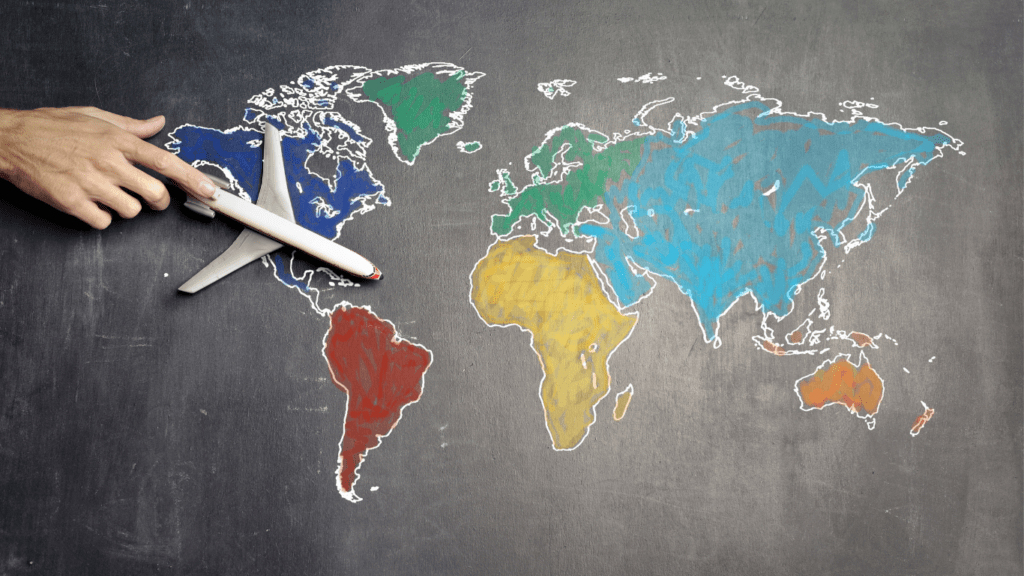Understanding the Benefits of Educational Travel for Children
Educational travel offers unique learning opportunities beyond traditional classroom settings.
Why Educational Travel Is Important
Exposing children to new environments and cultures broadens their horizons. When kids interact with various communities, they gain a better understanding of diversity. Seeing historical sites, for example, makes history tangible and easier to understand.
Through travel, children also learn adaptability, critical thinking, and problem-solving skills.
Key Benefits for Young Minds
Travel stimulates cognitive development in children. Experiencing different languages and customs enhances linguistic abilities and cultural literacy. Hands-on learning experiences in new settings improve information retention.
Engagement in diverse activities, such as visiting science museums, nature reserves, and art galleries, fosters curiosity and creativity.
Planning Your Trip
Planning enriches travel, transforming it into an educational journey for kids. Focus on setting clear objectives and aligning them with your destination.
Choosing the Right Destination
Select destinations that offer historical, cultural, or scientific significance. Consider visiting places like Washington, D.C. for its museums and monuments, or Rome for its ancient ruins and art. Ensure the destination caters to your child’s interests, such as marine life, by opting for coastal cities with aquariums.
Incorporating Learning Goals
Set specific learning objectives before the trip. Identify educational sites that align with these goals, like visiting a local museum to learn about geology if studying Earth sciences. Plan interactive activities, such as treasure hunts, to make learning engaging and memorable.
Essential Tools for Educational Travel
Teaching kids while traveling becomes more engaging with the right tools.
Interactive Guides and Apps
Using interactive guides and apps makes learning on the go effective and fun. Apps like Google Earth offer immersive geographical explorations, letting children visualize global locations and learn about them.
Story-based apps, like Duolingo, help kids pick up new languages relevant to the destination. Many museums provide their apps, packed with detailed audio and visual guides, to enhance visits.
Educational Games and Books
Incorporating educational games and books maintains engagement during travel. Puzzle books centered on history or culture of the place spark curiosity.
Travel-themed games, such as “Brainbox’s Around The World,” encourage cognitive challenges and geographical knowledge. E-readers loaded with age-appropriate educational material, like classic literature or science books, facilitate learning during downtime.
Engaging Children During the Trip
While traveling, keeping children engaged boosts their educational experience. With planned activities and a focus on fun, learning becomes a natural part of the adventure.
Activities to Encourage Learning
1. Use Travel Journals:
Encourage kids to document their journey in a travel journal. Writing and drawing about daily experiences solidifies memories and enhances writing skills. Provide prompts to guide their entries.
2. Visit Educational Sites:
Incorporate visits to museums, historical landmarks, and science centers. Interactive exhibits stimulate curiosity and retention. Use site guides and treasure hunts to make visits exciting.
3. Adopt Local Culture:
Engage children with local customs and traditions. Participating in cultural activities, like cooking classes or local festivals, broadens their understanding of diverse lifestyles. Learning basic phrases in the local language enriches the experience.
2. Utilize Educational Apps:
Educational apps like Google Earth and Duolingo transform travel time into learning opportunities. These tools offer interactive ways to explore geography and languages. Pack e-readers with educational games and materials to keep learning on the go.
Keeping the Experience Fun and Interactive

1. Gamify Learning:
Turn learning into a game. Educational scavenger hunts at landmarks encourage exploration and observation. Award points for finding items or answering questions correctly.
2. Ask Open-Ended Questions:
Pose open-ended questions about observed phenomena and cultural differences. This encourages critical thinking and discussion. Questions should provoke thought and invite detailed responses.
3. Plan Kid-Friendly Itineraries:
Tailor itineraries to include child-friendly attractions like zoos, parks, and theme parks. Balance educational stops with recreational activities. This maintains enthusiasm and energy throughout the trip.
4. Encourage Social Interaction:
Facilitate interactions with local children through playdates or school visits. This promotes social skills and exposes kids to different lifestyles. Meeting peers from various backgrounds broadens their perspective.
5. Make Use of Interactive Tours:
Choose guided tours that involve children in activities. Tours with hands-on tasks or storytelling hold their attention better than passive listening. Interactive elements make historical sites and natural wonders more relatable.
Implementing these strategies ensures that travel remains educational while being enjoyable for children.
Real-Life Examples of Educational Travel
Educational travel offers practical lessons in real-world settings. Here are some successful experiences and tips from seasoned travelers.
Successful Family Trips
Families worldwide have found unique ways to blend adventures with learning. On a trip to Italy, one family explored Rome’s historic sites, like the Colosseum and Vatican City, sparking an interest in ancient history.
In Japan, another family immersed themselves in local traditions by participating in tea ceremonies and visiting temples, providing insights into cultural practices.
A trip to the Galápagos Islands offered another family firsthand learning about unique wildlife and ecosystem conservation. Diverse locations, customized itineraries, and interactive experiences can make travel both fun and informative for children.
Tips From Traveling Parents
Experienced parents often share valuable insights for making travel educational. One tip involves involving kids in trip planning, allowing them to research destinations, which boosts their organizational skills.
Another suggestion includes using travel journals for children to note down interesting facts, enhancing memory retention.
Parents also recommend incorporating educational apps that provide interactive lessons about the destinations. Engaging with locals and trying new languages are additional ways to enrich children’s travel experiences.
Practical activities, like cooking local dishes or joining community projects, offer immersive learning, creating lasting memories and educational value.

 Cynthian Holleyori is a skilled article writer who has been integral to the development of Toddler Health Roll. Her deep understanding of child health and development is evident in her well-researched and practical articles, which provide parents with essential guidance on raising healthy toddlers. Cynthian's contributions have significantly shaped the platform, ensuring that it addresses the most pressing concerns of parents and caregivers.
Beyond her expertise in toddler health and nutrition, Cynthian also delves into the mental and emotional well-being of young children. She offers valuable parenting strategies that help families foster a nurturing and supportive environment for their toddlers. Her dedication to building Toddler Health Roll has made it a trusted and comprehensive resource for parents committed to their children's growth and happiness.
Cynthian Holleyori is a skilled article writer who has been integral to the development of Toddler Health Roll. Her deep understanding of child health and development is evident in her well-researched and practical articles, which provide parents with essential guidance on raising healthy toddlers. Cynthian's contributions have significantly shaped the platform, ensuring that it addresses the most pressing concerns of parents and caregivers.
Beyond her expertise in toddler health and nutrition, Cynthian also delves into the mental and emotional well-being of young children. She offers valuable parenting strategies that help families foster a nurturing and supportive environment for their toddlers. Her dedication to building Toddler Health Roll has made it a trusted and comprehensive resource for parents committed to their children's growth and happiness.
